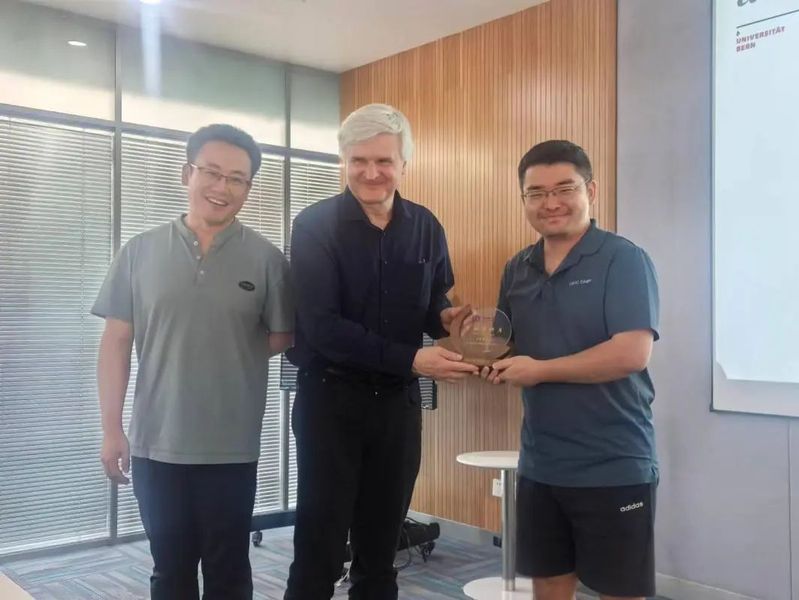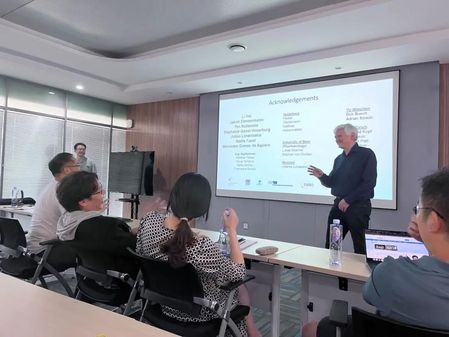On the afternoon of October 11, 2024, Professor Andrew Macpherson from the University of Bern, Switzerland, delivered an engaging lecture titled Specific B and T Cell Responses to Non-Pathogenic Microbiota Microbes at the 43rd “Beishizhang Lecture,” hosted by the Graduate School and the School of Life Sciences and Medicine at the University of Science and Technology of China (USTC). The lecture, held in the Life Sciences Building, was chaired by Professor Hai Li of USTC.
Before the lecture, Professor Hai Li introduced Professor Beishizhang and the origin of the Beishizhang Lecture series to the students and faculty in attendance, also providing an overview of Professor Macpherson’s research background and major research focus. Professor Shu Zhu presented Professor Macpherson with a commemorative plaque in honor of the Beishizhang Lecture.

In his talk, Professor Macpherson used a humorous and accessible approach to delve into the mechanisms behind specific B and T cell responses to non-pathogenic microbiota. He highlighted the deep interactions between gut microbiota and host adaptive immunity, particularly the role of secretory IgA as a major component of the immune system’s arsenal. This immunoglobulin accounts for a significant portion of antibody production in mammals. His team has also used engineered bacterial strains that can reversibly colonize germ-free mice to study immune responses. These experiments revealed a pathway through which Escherichia coli stimulates IgA antibody production and plays a role in gut physiology. Additionally, Professor Macpherson uncovered the key role of lactobacilli in influencing the differentiation of host-resident Th cells.

Following the lecture, faculty and students eagerly engaged in a lively discussion, raising questions about the current state and future directions of microbiota-immune research. Professor Macpherson patiently addressed each question, fostering an enthusiastic atmosphere of academic exchange.


